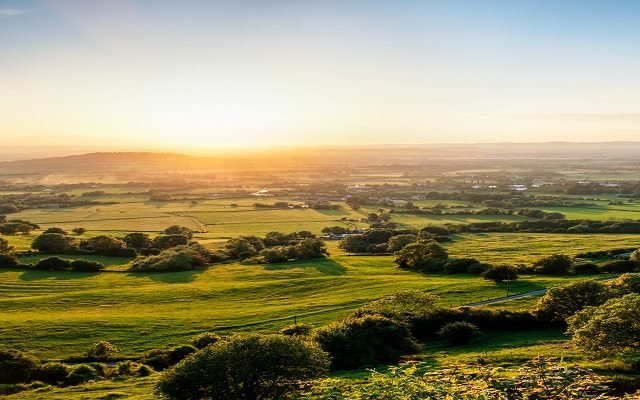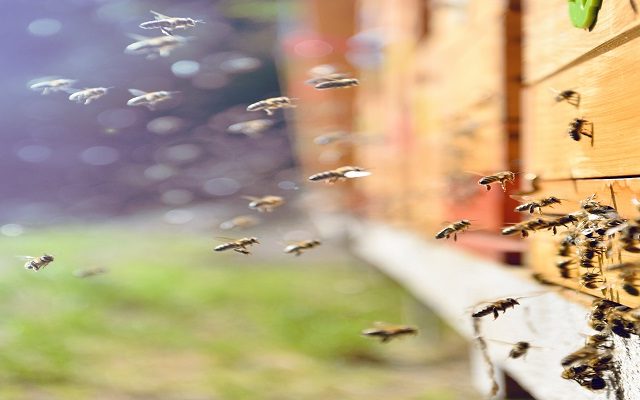Land Business Update | Week Commencing 14 October 2024
Environment and forestry
State of Natural Capital Report – current value of the UK’s natural wealth is just over £1.5 trillion
The UK’s natural capital is important as so much of our economy, society and wildlife depends on our natural assets being in good condition. An example is the dependence of farming on nature. Farming depends on the condition of the soil, the availability of water for irrigation, protection from flooding, pollination, and the increasing incidence of pests and diseases. The article below on harvest 2024 shows the effect of climate change, which is greatly affected (positively and negatively) by changes in natural capital.
Natural England’s annual report has rated the natural assets that farming depends on as at medium to high risk, with the impacts from climate change, invasive species and land-use change all increasing. The assessment for forestry is worse – at high risk – for many of the same reasons. NE has identified a range of priority actions for reducing these risks, including:
- Sustainability managing soils and river catchments.
- Enhancing nature rich areas through sustainable farming and forestry.
- Sustainably managing natural carbon stores, including woodlands, peatlands and other soils.
- Using land use planning to protect and enhance ecosystems.
NE chairman Tony Juniper has accused policymakers of acting as if “oblivious” to the accelerating decline of key ecosystems, and implored the Government and private sector to urgently improve how they value nature.
Planting of spruce trees banned in parts of East Anglia and South East England
The new measures come into effect from 29 October, following further incidences of the eight-toothed spruce bark beetle (Ips typographus) across the existing demarcated area, which includes parts of Lincolnshire, Bedfordshire, Cambridgeshire, Norfolk, Suffolk, Hampshire, Berkshire, Buckinghamshire, Hertfordshire, Surrey, Greater London, Sussex, Kent and Essex. NB There are exemptions from the ban, including for Christmas tree growers, arboretums, nurseries and some others.
Atlantic salmon numbers fall to lowest recorded level in England
Just over 5,000 fish were caught in 2023, well below the 20,000 or more caught up until 2017, and 50,000+ in the 1990s, according to data from the Environment Agency. There has been a similar decline in Wales. The species is now ‘endangered’ on the IUCN Red List, which assesses threatened species; it was previously ‘least concern’. 84% of the 49 rivers in England that support salmon are now ranked as ‘at risk’ for them. The reasons for the decline are multiple – both at sea and in rivers – but salmon are faring worse in the UK than in many other European countries, according to Bangor University. For example, the Wye Salmon Association, where catches have dropped to 10% of what they were, blames agricultural fertiliser run off into river, mostly from chicken farms.
Farming
Provisional government data on harvest 2024
The provisional figures show the area of wheat planted as 10% less than in 2023 and with production down 22%, so that the forecast harvest is 10 million tonnes. This makes it the second worst wheat harvest since records began in 1983. Bread making wheats have been affected more than feed wheats but the effect on food prices and availability is largely dependent on production elsewhere in the world.
The winter barley harvest is 26% lower than in 2023 but was more than offset by a 41% increase in spring barley. Oilseed rape production was 33% lower.
Separately, Europe is already experiencing extreme weather this autumn, with the recent flooding caused by Storm Boris leading to at least 24 deaths and billions of pounds of damage. Central Europe had the rainiest four-day period ever, according to the World Weather Attribution group. The intensity of the rain was made twice as likely by climate change. This level of rainfall is rare but, if global warming reaches 2oC, it will become 50% more frequent and even more intense.
S&P comment: The challenges from the weather are getting worse. Rain in September could already affect harvest 2025. Wet autumns and more variable weather in the spring and summer, including droughts, make building greater resilience into rotations and management of individual crops even more important. Please call Jonty Armitage, our head of farming, if you want to discuss cropping and resilience.
Separately, Flood Action Week runs from 14 to 20 October. One of the actions the Environment Agency recommends is to take personal responsibility for protecting yourself from future flooding.
How the EU can reduce its ‘protein gap’
The EU’s Joint Research Centre has published a new report on how the bloc can reduce the ‘gap’ between the amount of protein that it consumes and how much is produced. The researchers developed a number of scenarios for reducing the gap: coupled support to incentivise EU protein crop production; increasing protein feed use efficiency within the EU livestock sector; a decrease in livestock production density to 2.0 livestock units per hectare; gradual transition towards healthier and more sustainable human diets (based on the dietary recommendations of the EAT-Lancet Commission); and a combined scenario which includes some of the above supply-side actions and dietary changes.
It is the scenario that involves the change in diet that has the greatest effect on increasing protein self-sufficiency. In terms of the scale of the change modelled, it was based on a 6% increase in the intake of plant-based calories and a 6% decrease in the consumption of animal-based calories. This scenario would also increase EU imports of vegetables and other crops, cut GHG emissions (both EU and from countries they import from, by not far off total annual agricultural emissions in the UK), reduce nitrogen pollution into the environment and reduce soil erosion risk. The researchers conclude that to reduce reliance on imported feed protein, EU protein supply and demand need to be tackled jointly. NB This is not the widely anticipated ‘protein report’, which is still due.
Decision on funding of Farming Recovery Fund in England delayed until Budget
The Fund was first announced in January and pays grants of £500 – 25,000 to cover recultivation costs due to flooding. Many farming organisations are concerned about the delay, despite reassurances from Defra that a decision was imminent.
Property and rural economy
5,000 heat pumps installed in record-breaking year in Scotland
This is a 34% increase over 2023. The data from the Microgeneration Certification Scheme shows that more than 20% of households in the Western Isles now have a heat pump system, with 15% in the Orkney Islands and 9% in Argyll and Bute. WWF Scotland says that one in three Scottish households are currently in fuel poverty. In England, the government has increased spending on the Boiler Upgrade Scheme by £50m (NB this is by allowing Ofgem to over-allocate spending in this financial year). Separately, the Scottish Government is planning to introduce the Heat in Buildings Bill which was drawn up with the Green Party, prior to their power sharing agreement ending. It aims to ensure that all households no longer use fossil fuel heating systems by 2045, signalling a move to heat pumps and other renewable technology.






